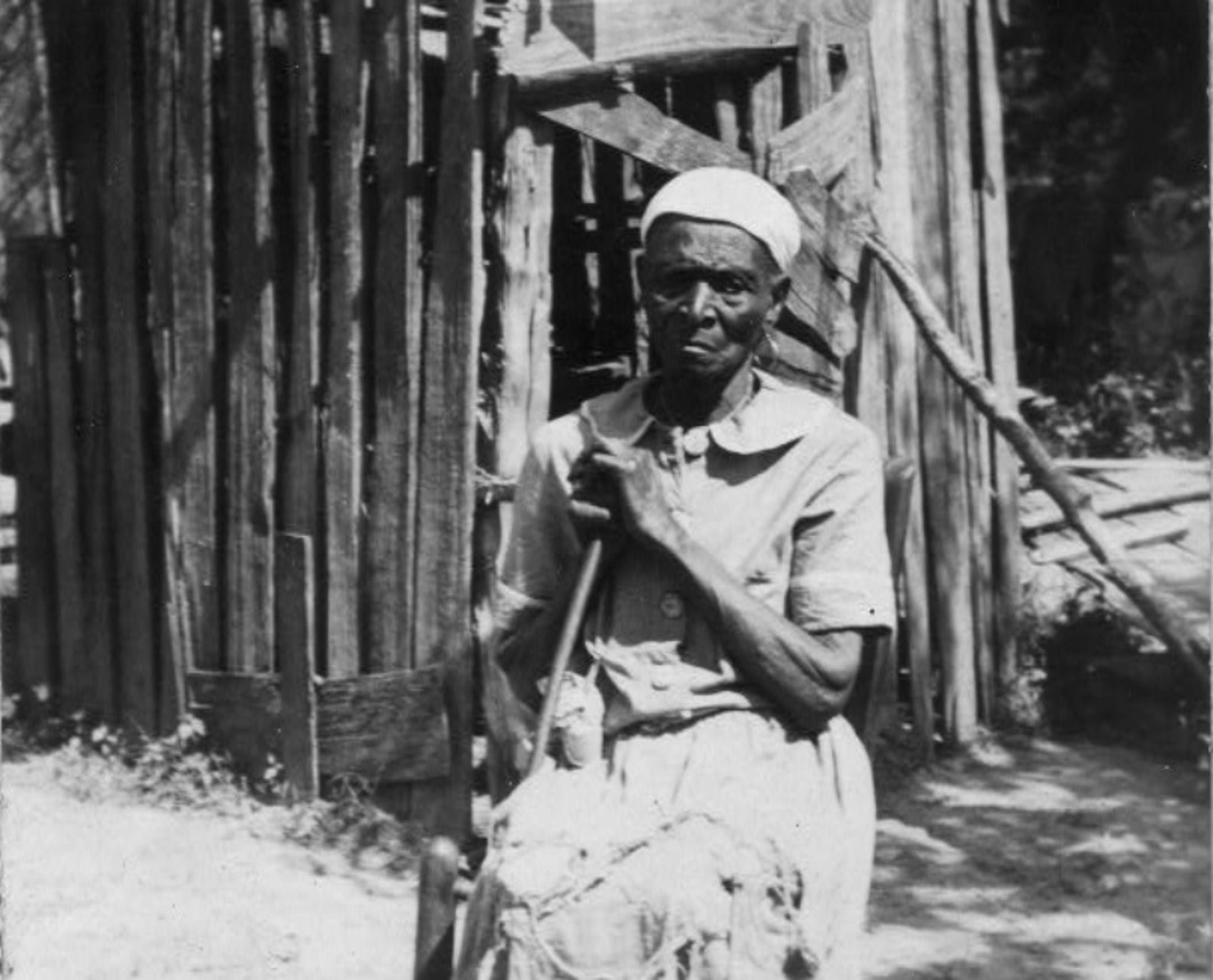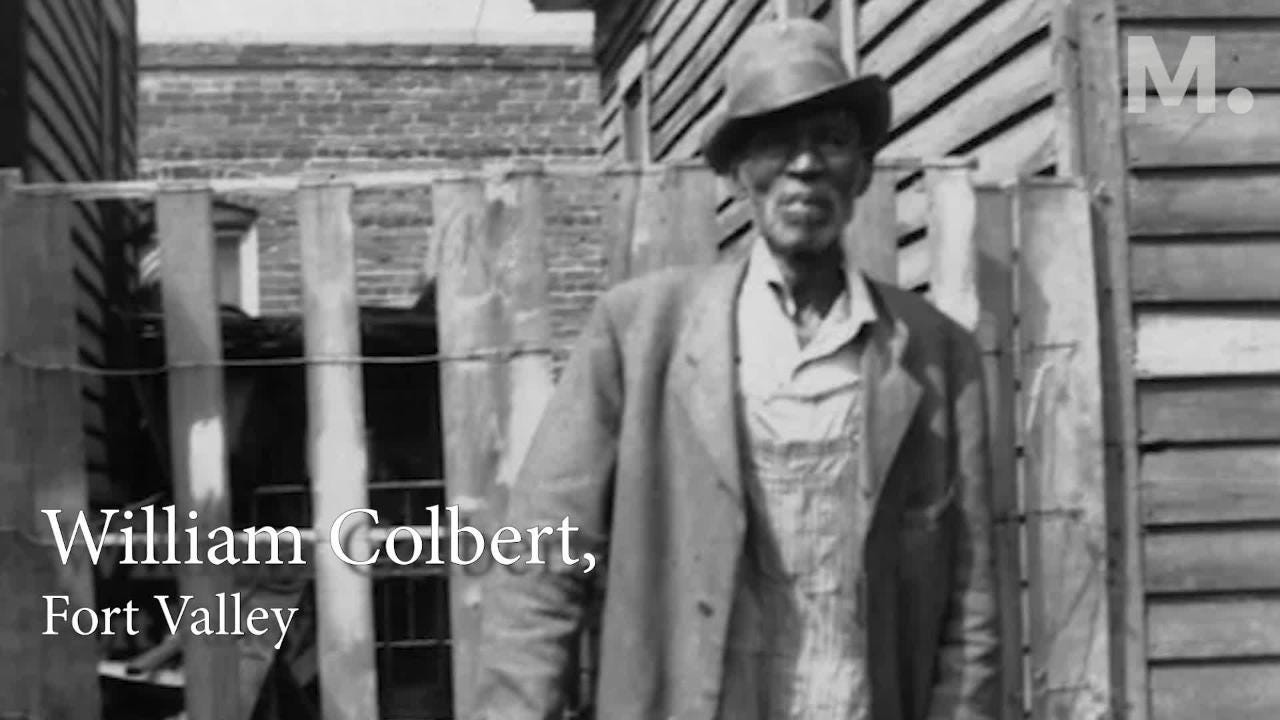The Montgomery Advertiser

'Where was the Lord?': On Jefferson Davis' birthday, 9 slave testimonies
The voices of five men and four women, once held in human bondage, interviewed in Alabama in 1937.
Brian Lyman, Montgomery AdvertiserUpdated 3:36 p.m. EDT June 3, 2019
Today the state of Alabama marks the birthday of Jefferson Davis, who served as president of the Confederate States of America from 1861 to 1865. A state holiday, state offices are closed throughout Alabama. Davis, who at one point owned more than 100 slaves, led a government resting on the principle of white supremacy. The Confederate Constitution contained a provision explicitly prohibiting any law "impairing the right of property in negro slaves," and his vice president, Alexander Stephens, said the "cornerstone" of the new government "rests upon the great truth, that the negro is not equal to the white man; that slavery — subordination to the superior race — is his natural and normal condition."
Davis was a racist. In a speech to the U.S. Senate in 1860, the then-senator from Mississippi said slavery was "a form of civil government for those who by their nature are not fit to govern themselves," adding "We recognize the fact of the inferiority stamped upon that race by the Creator, and from cradle to grave, our government, as a civil institution, marks that inferiority." After his inauguration as president of the Confederacy, Davis said "We recognized the negro as God and God's Book and God's laws, in nature, tell us to recognize him. Our inferior, fitted expressly for servitude."

0:00
0:00
Where was the Lord? Four slave testimonies
Stories from U.S. slaves Delia Garlic, William Colbert, Laura Clark and George Young, narrated by Dr. Wendy R. Coleman of Alabama State University.
MONTGOMERY ADVERTISER
From 1936 to 1938, the Works Progress Administration, a New Deal agency, sent workers throughout the South to collect oral histories from survivors of slavery, eventually conducting more than 2,000 interviews, including at least 129 in Alabama. The workers were not necessarily trained interviewers, and scholars have noted that the race of the interviewer often had a major effect on the answers the former slaves gave. But the testimonies preserve the voices of those who experienced a hell that Davis and other white southerners were willing to destroy the country to protect.
Below, the testimonies of nine African Americans held in human bondage, all interviewed in Alabama in 1937. The transcripts have been edited for length and clarity.

View|10 Photos
9 slave testimonies on Jefferson Davis' birthday, a state holiday in Alabama
'Take Care of My Baby'
An estimated 1.2 million men, women and children were sold from the upper South to the lower South in the domestic Southern slave trade between 1760 and 1865. Montgomery became one of the most active slave trading posts, and by 1860, nearly two-thirds of the population (23,710) comprised of enslaved people. Being sent to the Deep South was considered the equivalent of a death sentence for many slaves. One abolitionist wrote: "There is such havoc annually among the slaves of the great planters ... that in less than seven years, if no slave could be imported into those regions, one half of the plantations would lie uncultivated for want of slaves." Prices varied, but in 1860, Alabama slaveholders could sell a field hand for as much as $1,600 -- a little over $45,000 today. Many of those interviewed had first-hand experience with being sold.
William Henry Towns, Sheffield

Show captionWilliam Henry Towns was born into slavery in 1854 in Tuscumbia. His father came from Huntsville; his mother from Maryland. His father was later sold...
LIBRARY OF CONGRESS
Sometimes I visits old Mingo White and me and him talk over them days that me and him was boys. We gets to talking and before you know it old Mingo is crying like a baby. According to what he says he is lucky to be living. This is one thing I never like to talk about. When slavery was going on, it was all right for me because I never had it hard, but it just wasn’t right to treat human beings that way. If we hadn’t a had to work and slave for nothing we might have something to show for what we did do, and wouldn’t have to live from pillar to post now.
Mingo White, Sheffield
When I was about 4 or 5 years old, I was loaded in a wagon with a lot more people in it. Where I was bound I don’t know. Whatever become of my mammy and pappy I don’t know for a long time.
Laura Clark, Livingston (born in North Carolina, she and nine other children were sold when she was 6 or 7)

Show captionBorn in North Carolina, Laura Clark was sold away from her mother when she was six or seven years old. Speaking to an interviewer in...
LIBRARY OF CONGRESS
I recollect Mammy said to old Julie, ‘Take care my baby child (that was me), and if I never see her no more raise her for God.’ Then she fell off the wagon where us was all sitting and roll over on the ground just a-crying. But us was eatin’ candy what they done give us for to keep us quiet, and I didn’t have sense enough for to know what ailed Mammy, but I know now and I never seed her no more in this life. When I heard from her after surrender she done dead and buried. Her name was Rachel Powell. My pappy’s name I don’t know cause he done been sold to somewhere else when I was too little to recollect. But my mammy was the mother of 22 children and she had twins in her lap when us drive off. My grandmammy said when I left ‘Pray, Laura, and be a good gal, and mind both white and black. Everybody will like you, and if you never see me no more, pray to meet me in heaven. Then she cried. Her name was Rose Powell.
Delia Garlic, Montgomery
I was growed up when the war come, and I was a mother before it closed. Babies was snatched from their mother’s breasts and sold to speculators. Children was separated from sisters and brother and never saw each other again.
Course they cry; you think they not cry when they was sold like cattle? I could tell you about it all day, but even then you couldn’t guess the awfulness of it.
It’s bad to belong to folks that own you soul and body; that can tie you up to a tree, with your face to the tree and your arms fastened tight around it; who take a long curling whip and cut the blood, every lick. Folks a mile away could hear them awful whippings. They was a terrible part of living.
Beatings and torture

Oliver Bell said his first childhood memory was watching his mother get whipped.
LIBRARY OF CONGRESS
Beatings and mutilations were well-known on plantations. Slaves also suffered from overwork and malnourishment. In his autobiography, My Bondage and My Freedom, the abolitionist and former slave Frederick Douglass condemned "the rough usage of the field, where vulgar coarseness and brutal cruelty spread themselves and flourish, rank as weeds in the tropics; where a vile wretch, in the shape of a man, rides, walks, or struts about, dealing blows, and leaving gashes on broken-spirited men and helpless women, for $30 per month — a business so horrible, hardening, and disgraceful that, rather than engage in it, a decent man would blow his own brains out."
Oliver Bell, Livingston
I'll tell you the first thing I remember, and I don't know what started it. One day my mammy done something, and old master made her pull her dress down round her waist and made her lay down across the floor. Then he taken a leather strap and whooped her. I remembers that I started crying and Mistus Beckie said, ‘Go get that boy a biscuit.’











